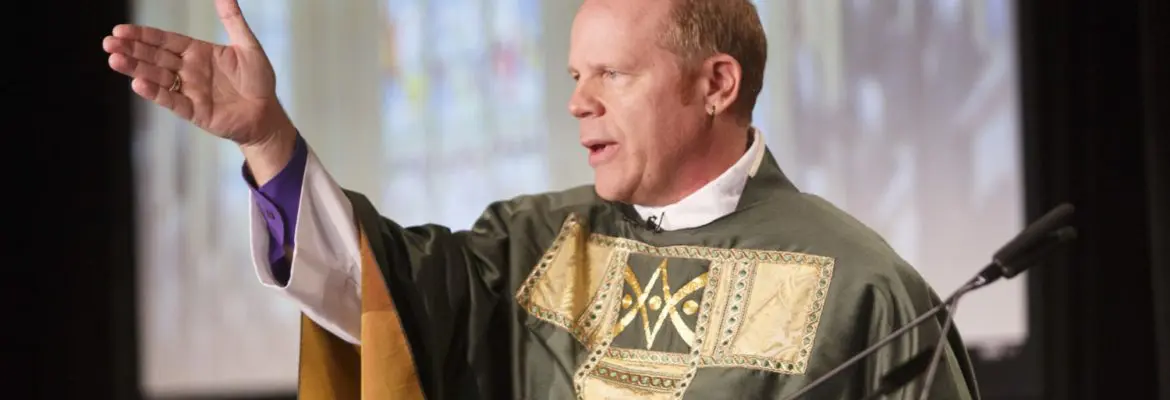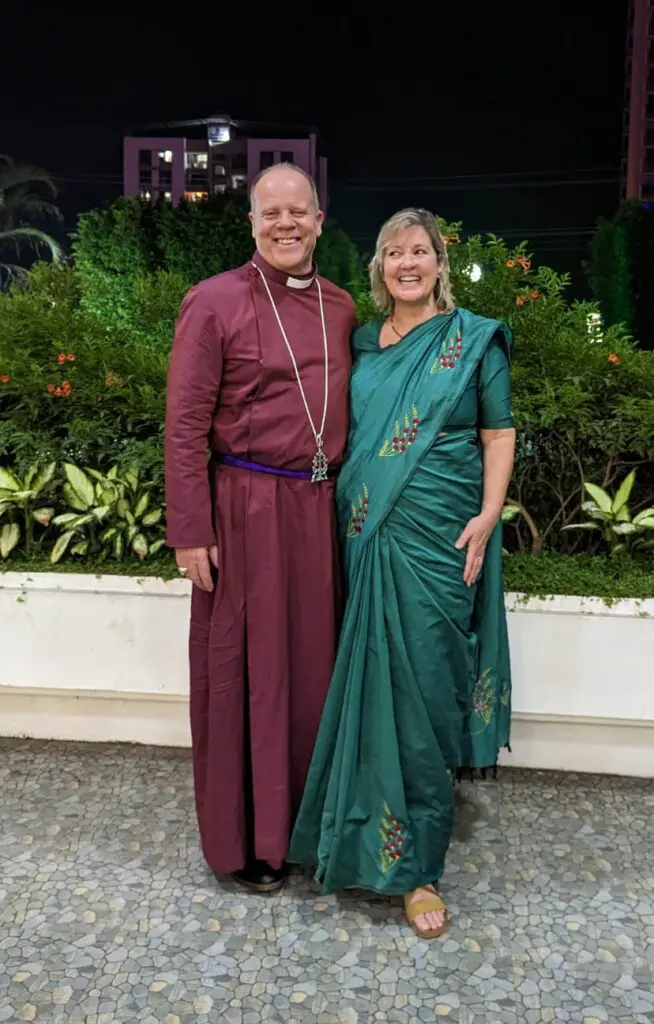
Dear Friends,
 My wife Mary and I continue to enjoy our visit to South India. The official portion of our time here has come to an end; here is one last photo from Sunday evening after the closing service, with me in my new cassock and Mary in her lovely new sari. We are now enjoying a few days of winter break to explore and learn more about this amazing country before we head for home.
My wife Mary and I continue to enjoy our visit to South India. The official portion of our time here has come to an end; here is one last photo from Sunday evening after the closing service, with me in my new cassock and Mary in her lovely new sari. We are now enjoying a few days of winter break to explore and learn more about this amazing country before we head for home.
India is a remarkable place, rich in culture and history. Every day we learn something new about the Church here and its people. And, as I’m sure you’ve experienced as well, we also discover new insights about being Canadian from travelling abroad and being immersed in a different culture.
Rightly or wrongly, India is often associated with extreme poverty. Our familiarity with St. Teresa of Calcutta has embedded that in our mindset. While it has certainly been the case for us that we have witnessed examples of the large gap between rich and poor during our visit, we also know that there is an income disparity in Canada as well, one that is becoming more pronounced every year. What can be done? How do we act?
Now that it is February, most of our parishes in the Diocese of Toronto will be holding their annual vestry meetings this month. For well over a decade, our Social Justice & Advocacy Committee, with the approval of the College of Bishops, has put forward an annual motion on a pressing social justice issue for consideration by parishes in the Diocese. This year’s social justice vestry motion calls for a doubling of social assistance rates in Ontario, and indexing them to inflation going forward. This is one way, a start, in addressing poverty in our own society and speaking out on behalf of the poor.
While doubling social assistance rates sounds like a lot, for a single person on Ontario Works (OW), it would result in a maximum benefit of $1,466 per month – still only 80% of the poverty line. A single recipient of the Ontario Disability Support Program (ODSP) would be raised only 15% above the poverty line, which does not account for the extra costs associated with permanent disability.
The cost of food and housing has been increasing for some time, with prices skyrocketing over the past year. Yet, since social assistance rates were slashed in the late 1990s, increases to those rates have not kept pace with inflation, with the result that people on social assistance have been left farther and farther behind. Even before the massive increase to inflation in 2022, welfare recipients in Ontario were living in deep poverty, with incomes from 40% to 60% below the official poverty line. We have seen the impacts on the massive increases in the numbers of people at food banks, meal programs, and those experiencing homelessness, in communities across our Diocese.
What this motion does is acknowledge that people living with long-term, employment-limiting disabilities (recipients of ODSP) and those who are attempting to recover from catastrophic circumstances like family violence, illness or accident, facing physical or mental health challenges, and/or facing or risking homelessness (those eligible for OW) should not have to live in legislated deep poverty. The economic cost of the burden on our health care, emergency services, justice system and more has been estimated as costing Ontario between $27 million and $33 million annually. The moral cost for us as a society is far greater.
I encourage every parish to consider passing this year’s social justice vestry motion. The motion and its backgrounder, along with other resources, are available on our website at www.toronto.anglican.ca/vestry-motion.
Yours in Christ,
The Rt. Rev. Andrew Asbil
Bishop of Toronto